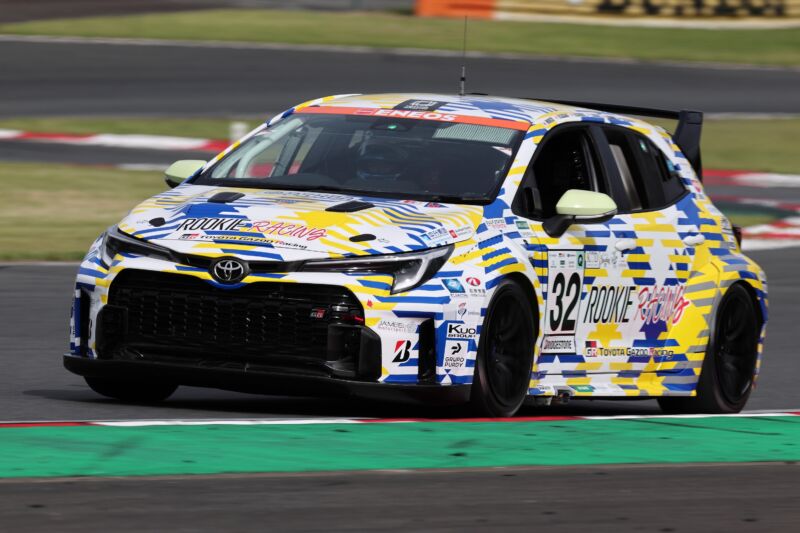Enlarge / “It got more attention than last year, and the development feels steadier, faster, and safer,” said Toyota Chairman Akio Toyoda when asked how the hydrogen-powered Corolla had improved from 2023. (credit: Toyota)
A couple of weekends ago, when most of the world’s motorsport attention was focused on Monaco and Indianapolis, Toyota President Akio “Morizo” Toyoda was taking part in the Super Taikyu Fuji 24 Hours at Fuji Speedway in Japan. Automotive executives racing their own products is not exactly unheard of, but few instances have been quite as unexpected as competing in endurance races with a hydrogen-burning Corolla.
A hydrogen-powered Toyota has shown up for the past few years, in fact, as the company uses the race track to learn new things about thermal efficiency that it says have benefitted its latest generation of internal-combustion engines, which it debuted to the public at the end of May.
With backing from its government, the Japanese auto industry has continued to explore hydrogen as an alternative vehicle energy source instead of liquid hydrocarbons or batteries. Commercially, that’s been in the form of hydrogen fuel cells, although with very little success among drivers, even in areas that have some hydrogen fueling infrastructure.
Read 11 remaining paragraphs | Comments

